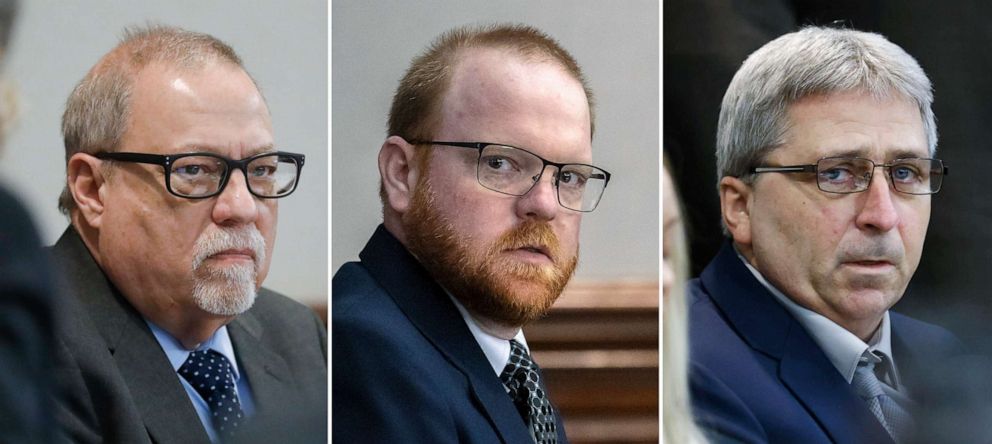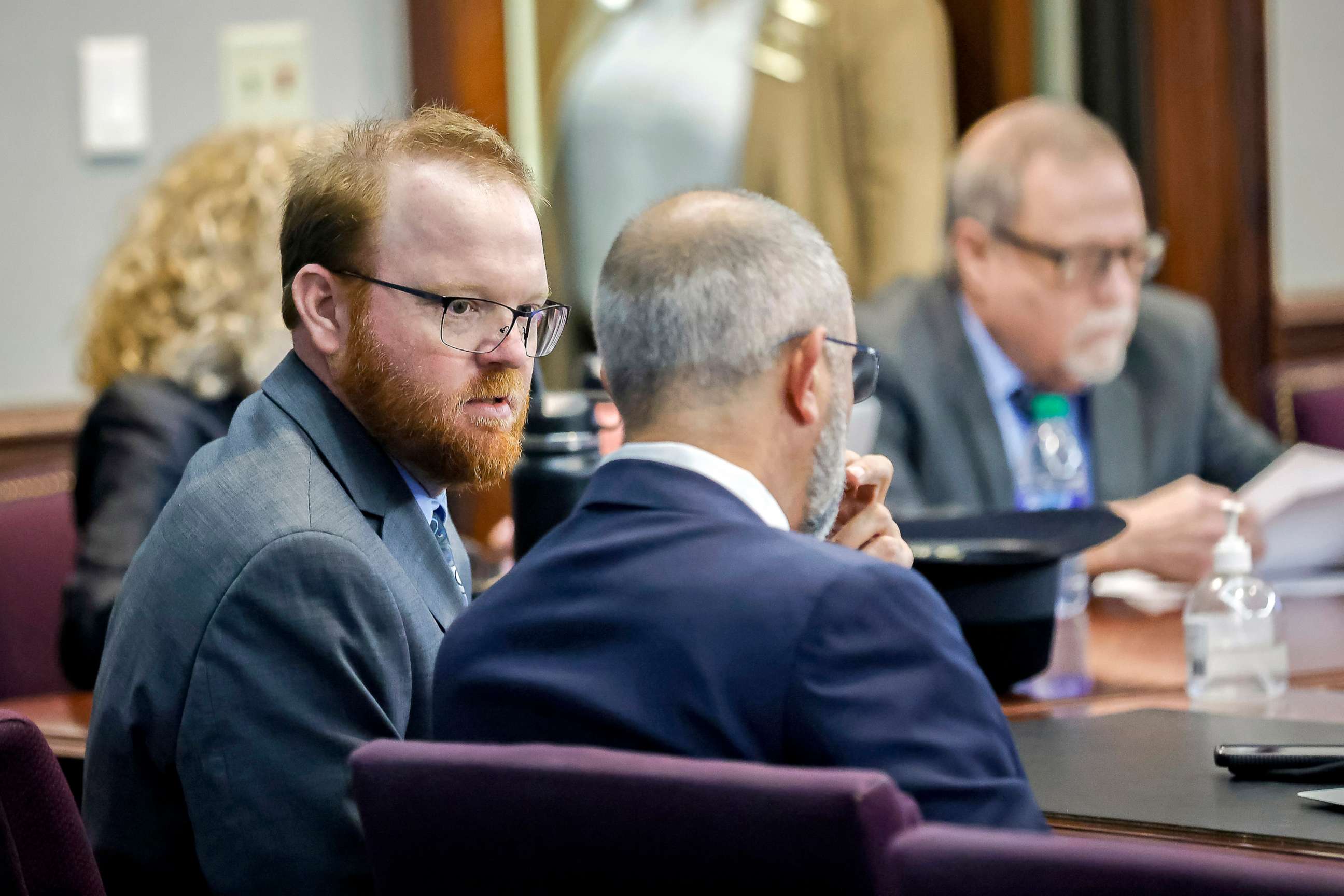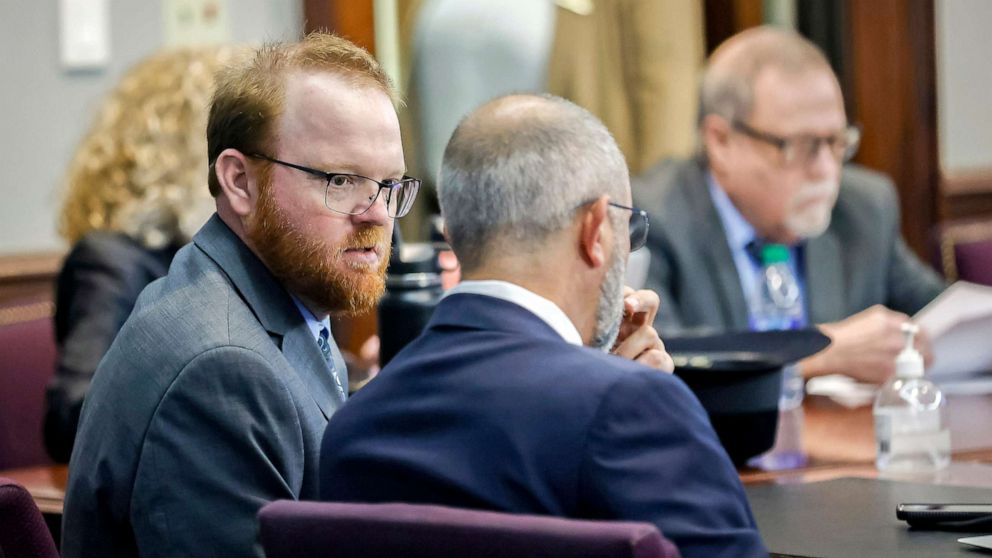Racist messages, vile online posts highlighted in hate crimes trial of Ahmaud Arbery's killers
In his state trial for the murder of Ahmaud Arbery, Travis McMichael testified he is not a racist. But prosecutors in his federal hate crimes case have presented the jury with numerous statements, text messages and social media posts to allege racism was the underlying motive for why he, his father and their neighbor chased down and killed the 25-year-old Black man.
FBI analyst Amy Vaughn testified on Wednesday that she found a digital onslaught of messages, mostly from Travis McMichael, in which he allegedly routinely used racial slurs to describe Black people and advocated violence against them.
In one instance, Vaughn testified that the 36-year-old McMichael posted on social media his reaction to a news report on a confrontation between two white people and two Black people, allegedly saying Black people needed to be made examples of.

"'They'd be scraping up brain matter if this happened to my wife or daughter,'" Vaughn read out loud from McMichael's alleged message in U.S. District Court in Brunswick, Georgia.
McMichael, his 64-year-old father, Gregory McMichael, a former Georgia police officer; and their neighbor William "Roddie" Bryan, 52, have each been charged with one count of interference of Arbery's civil rights and attempted kidnapping. The McMichaels are also charged with using, carrying and brandishing a firearm in relation to a crime of violence and Travis McMichael faces an additional count of using a firearm in relation to a violent crime.
If convicted, the men could be sentenced to life in prison. All three are already serving life sentences, the McMichaels without the possibility of parole, after a state jury convicted them last year of murdering Arbery.
Derek Thomas, Travis McMichael's childhood friend, testified on Wednesday that he was shocked by a violent, racist response Travis McMichael allegedly gave to what he said was supposed to be a funny video of a Black man playing a prank on his white friend.
Thomas said he was so disturbed by Travis McMichael's texted response that he called him to confront him about it. When asked to read Travis McMichael's text in court, Thomas declined and instead spelled out the racial slur he used to describe Black people.
Vaughn said her investigation led to the discovery of racist online posts by Bryan and bigoted comments Gregory McMichael used to describe Black people.
While the FBI was unable to get access to Gregory McMichael's phone because of its encryption, Vaughn testified that investigators did find posts he made on Facebook that she read in court, including one in which he allegedly wrote, "The gun in the hand is worth more than the entire police force on the phone."

Vaughn said the FBI also uncovered numerous online posts from Bryan in which he allegedly express his resentment over a relationship his daughter developed with a Black man. In one post Vaughn read in court, Bryan allegedly wrote, "This is the only thing I said I would never accept" and added, "If she doesn’t give a f--- about herself, why should we?"
Arbery was out for a Sunday afternoon jog on Feb. 23, 2020, in the Satilla shores neighborhood near Brunswick, when the McMichaels assumed he was a burglarizing a home under construction in their neighborhood, armed themselves and chased him in their pickup truck. Bryan joined the five-minute pursuit, blocking Arbery's path with his truck. He recorded cellphone video of Travis McMichael fatally shooting Arbery with a shotgun during a struggle.
While the McMichaels claimed they chased Arbery not because he was Black, but because he was trespassing at their neighbor’s house, prosecutors on Wednesday showed the jury videos of Travis McMichael trespassing while on a hunting trip. In one of the videos, Travis McMichael is seen smiling while standing next to "No Trespassing" signs.
Prosecutors also showed the jury an online post in which Gregory McMichael allegedly wrote, "There’s private property and then there’s private property, you know?"
In her opening statement in the high-profile trial, Assistant U.S. Attorney Bobbi Bernstein told the jury she will also present evidence that Bryan told investigators that after Travis McMichael shot Arbery he allegedly heard him yell a racist epithet at the victim as he lay dying on the pavement.
Bernstein told the panel that while it is not illegal to use racial slurs, "these slurs can provide you with evidence as to why a defendant did what he did."




